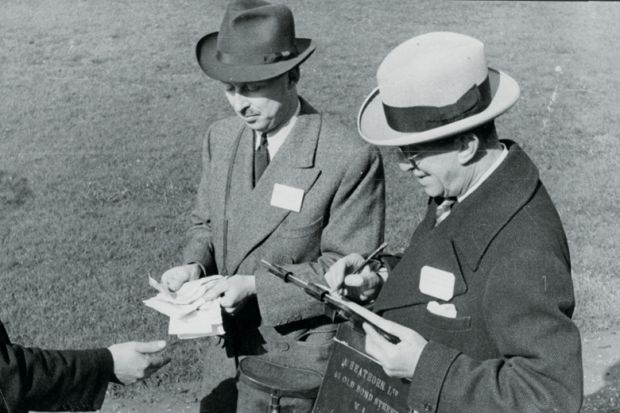English and Welsh higher education institutions were told to pay a record £485,000 in compensation to students under the sector’s ombudsman scheme last year, despite a significant drop in the number of complaints received.
The annual report of the Office of the Independent Adjudicator says that the number of complaints it received in 2015, 1,850, was 9.3 per cent lower than in the previous year. It was the smallest total since 2011, and represented only the second time that the OIA has seen a drop in complaint numbers from one year to the next.
The reduction also confounds the prediction made by Rob Behrens, the former chief executive of the OIA, that the number of complaints would rise as the first cohort of students being charged annual tuition fees of £9,000 reached their final year.
However, the report says that a number of factors may have contributed to the fall in grievances – in particular, a greater focus on resolving complaints informally before they reach the OIA and a change in the deadline for bringing complaints from three months to 12, introduced halfway through 2015, which may mean that some students wait longer than they might otherwise have done before lodging a claim.
Over the same period, the amount of compensation recommended by the OIA increased by 21.6 per cent, from £399,000 to £485,000, with financial remedies being offered to 230 students over the course of the year and exceeding £5,000 in 20 cases.
A number of particularly large awards accounted for a significant portion of the increase, with one student receiving £40,000 for “a number of shortcomings in supervision and the conduct of [their] supervisor”. Another was awarded £25,000 for failings in supervision and in the university’s handling of a dispute about authorship of research.
Judy Clements, the OIA’s chief executive since April, said that the nature and number of complaints had “remained fairly consistent over the last four years”.
“The slight drop in 2015 is likely to reflect work within providers to resolve issues locally and changes in the OIA rules that mean students now have a year, instead of three months, to bring their cases to us,” she said.
Nearly two-thirds of complaints (64 per cent) related to a student’s academic status, with 15 per cent focusing on service issues such as facilities or course content.
There was an increase in the proportion of cases relating to academic misconduct and plagiarism, which now represent 6 per cent of all cases, but the OIA says that most of these were not justified, relating to students failing to comply with regulations on taking mobile phones or notes into examinations.
In one such case, a student admitted to having taken notes into an exam and disposing of them during a toilet break, but complained that it was unfair to give her a mark of zero because she “had not intended to use the notes”.
“Many students complain about the severity of the penalty imposed and some appear not to understand how seriously providers take academic misconduct,” the report says.
What was perhaps the OIA’s strangest complaint of 2015 was submitted by a student “who had not yet started her course, but was anticipating difficulties based on earlier experiences”. Her case was ruled to be ineligible.
Register to continue
Why register?
- Registration is free and only takes a moment
- Once registered, you can read 3 articles a month
- Sign up for our newsletter
Subscribe
Or subscribe for unlimited access to:
- Unlimited access to news, views, insights & reviews
- Digital editions
- Digital access to THE’s university and college rankings analysis
Already registered or a current subscriber? Login







